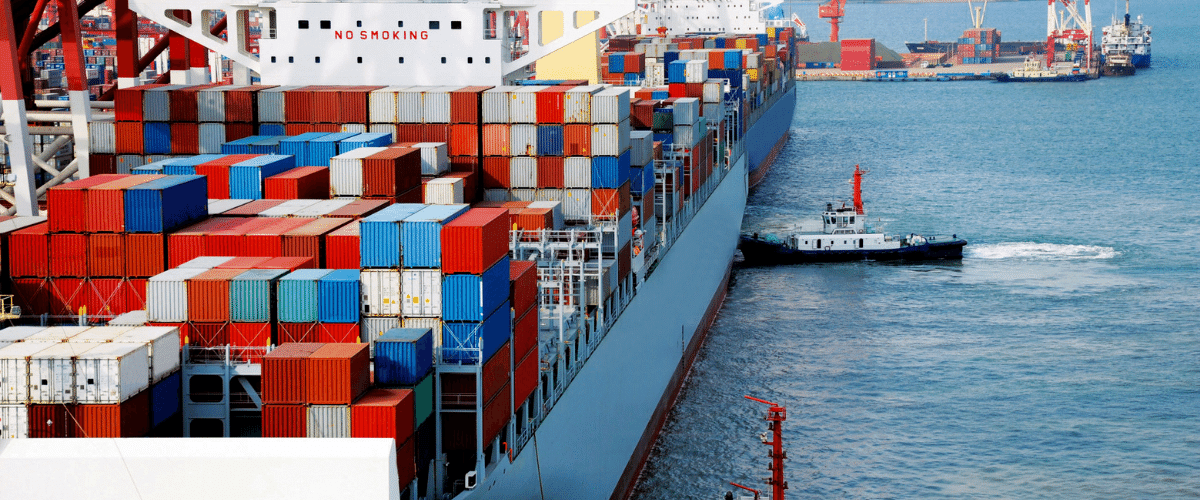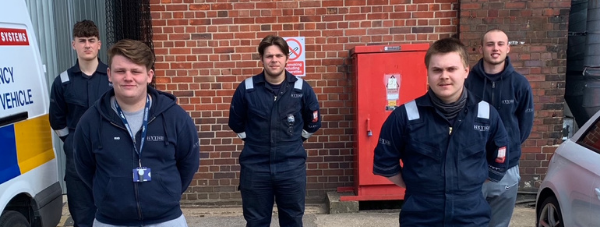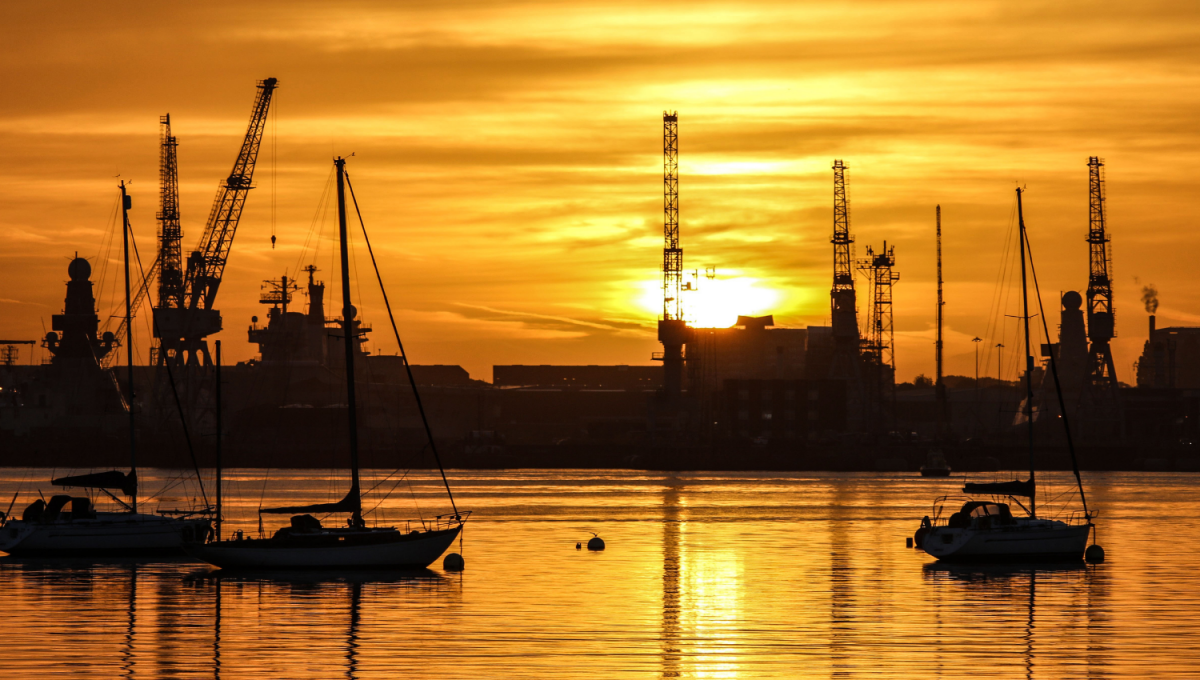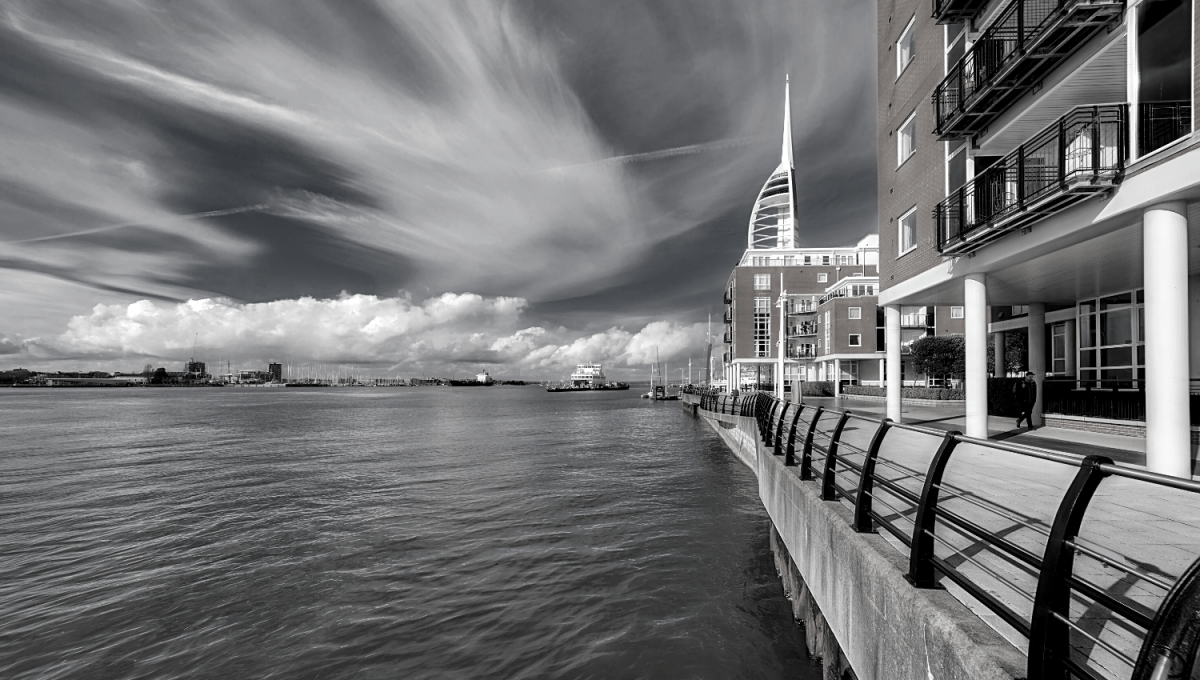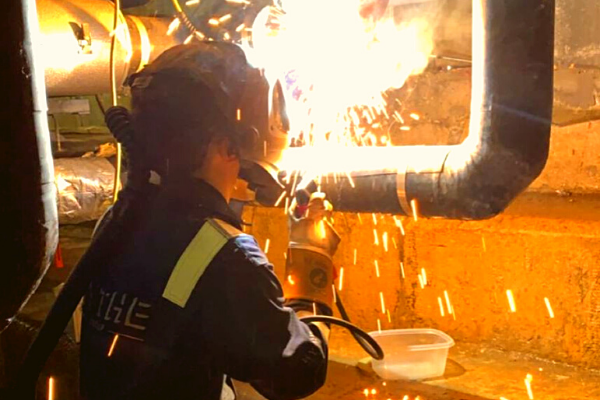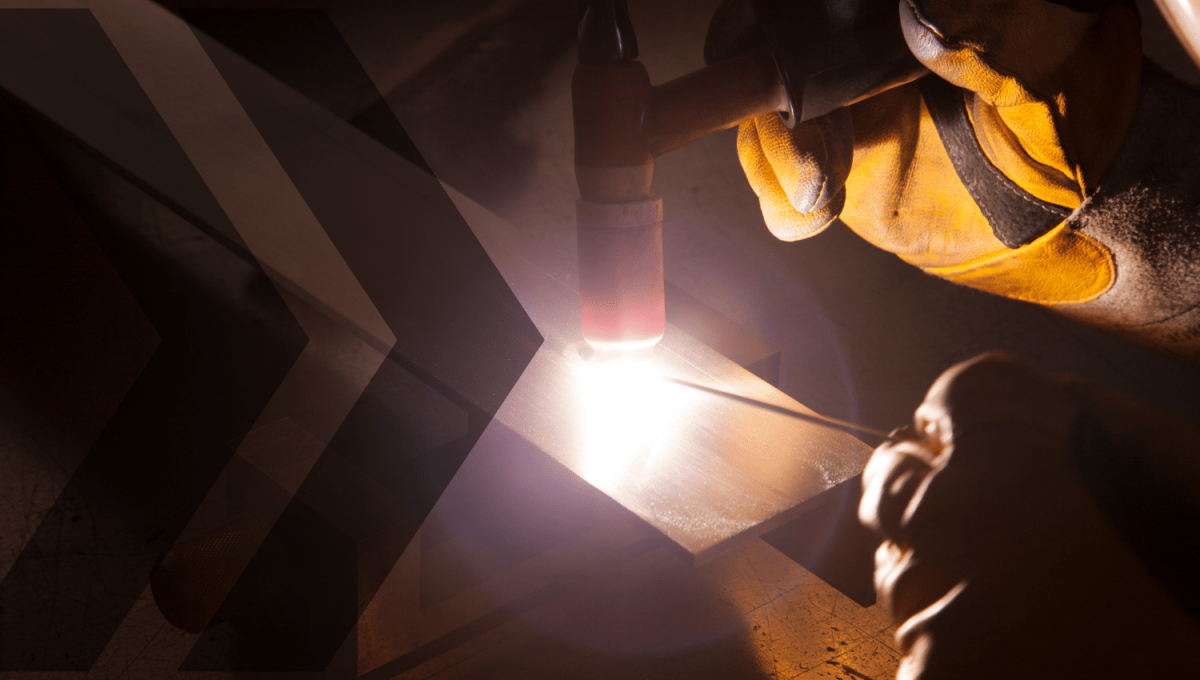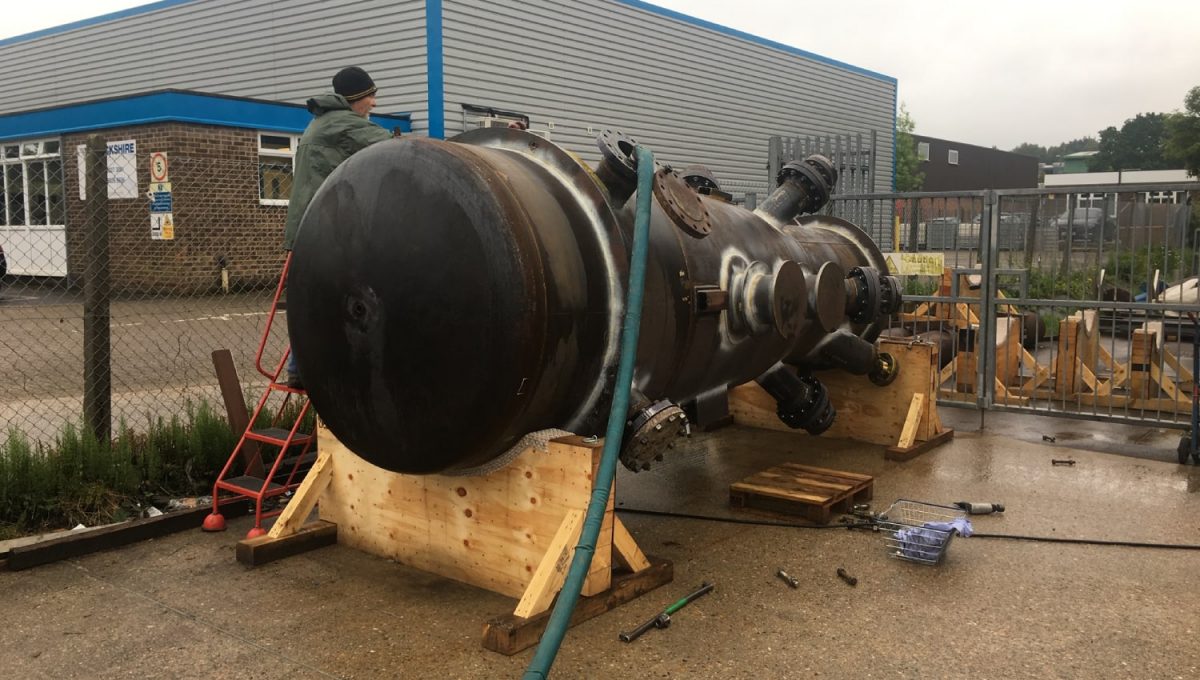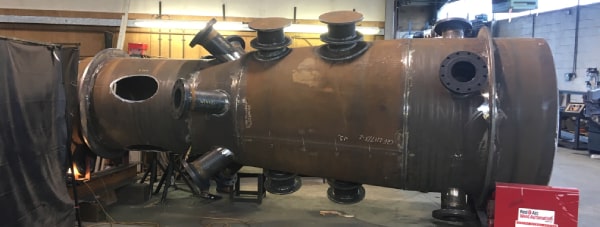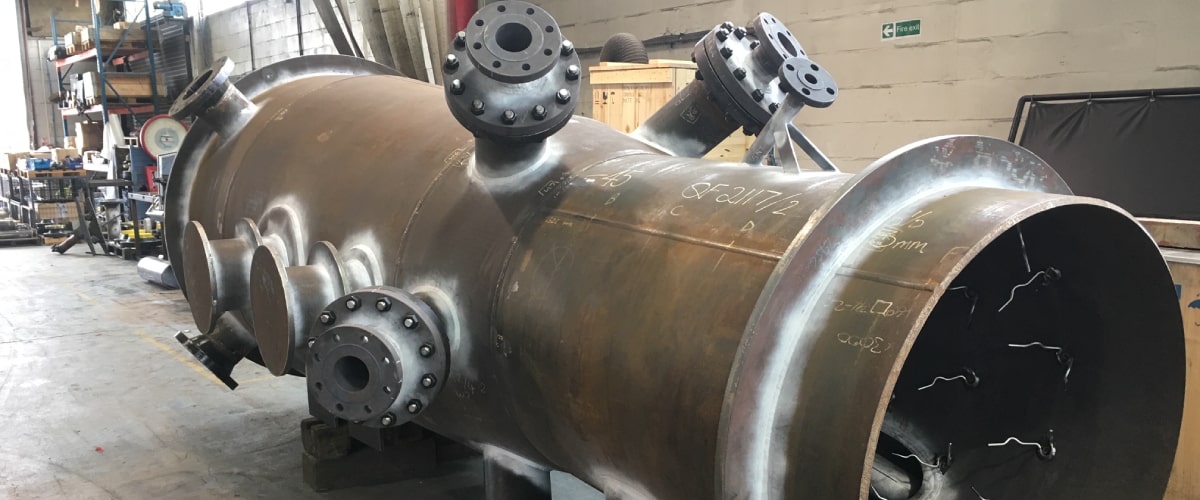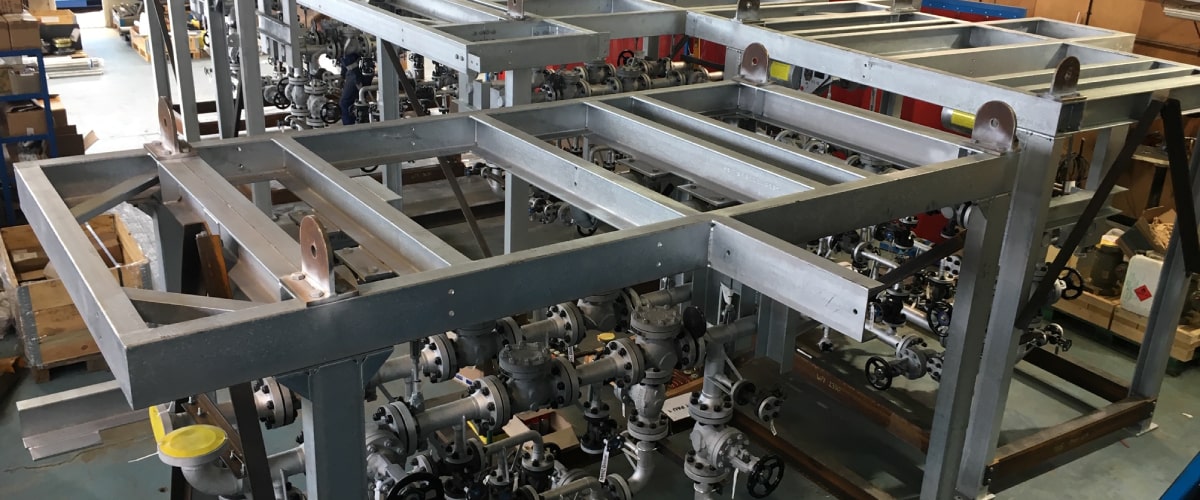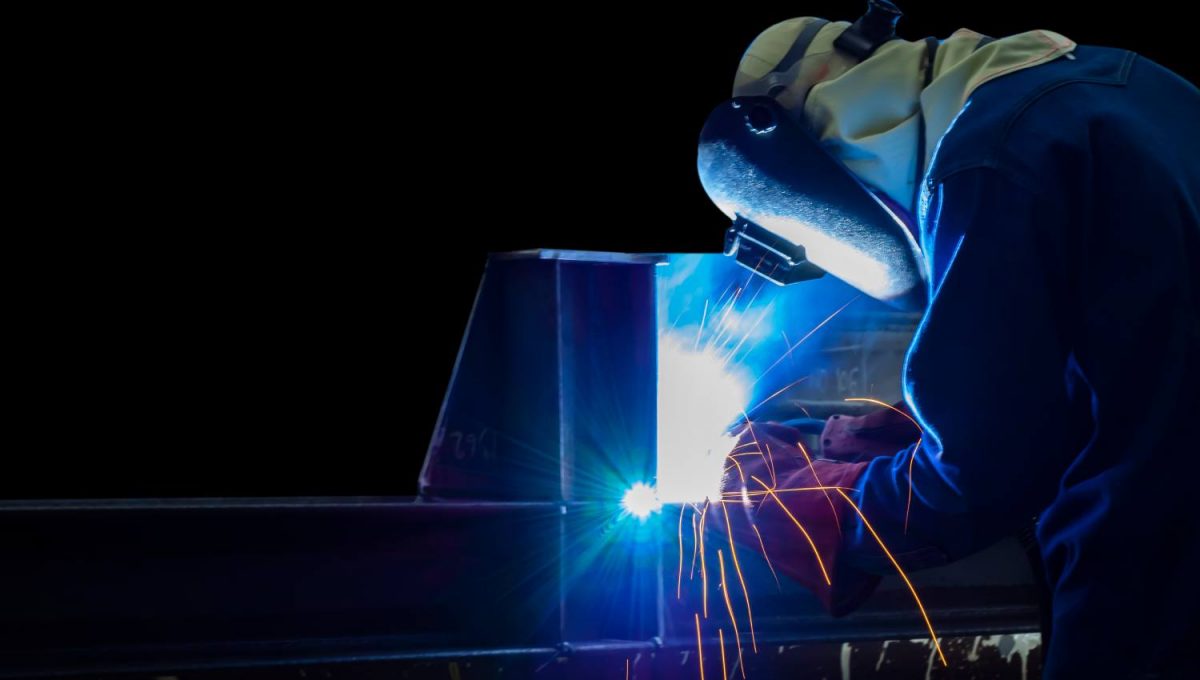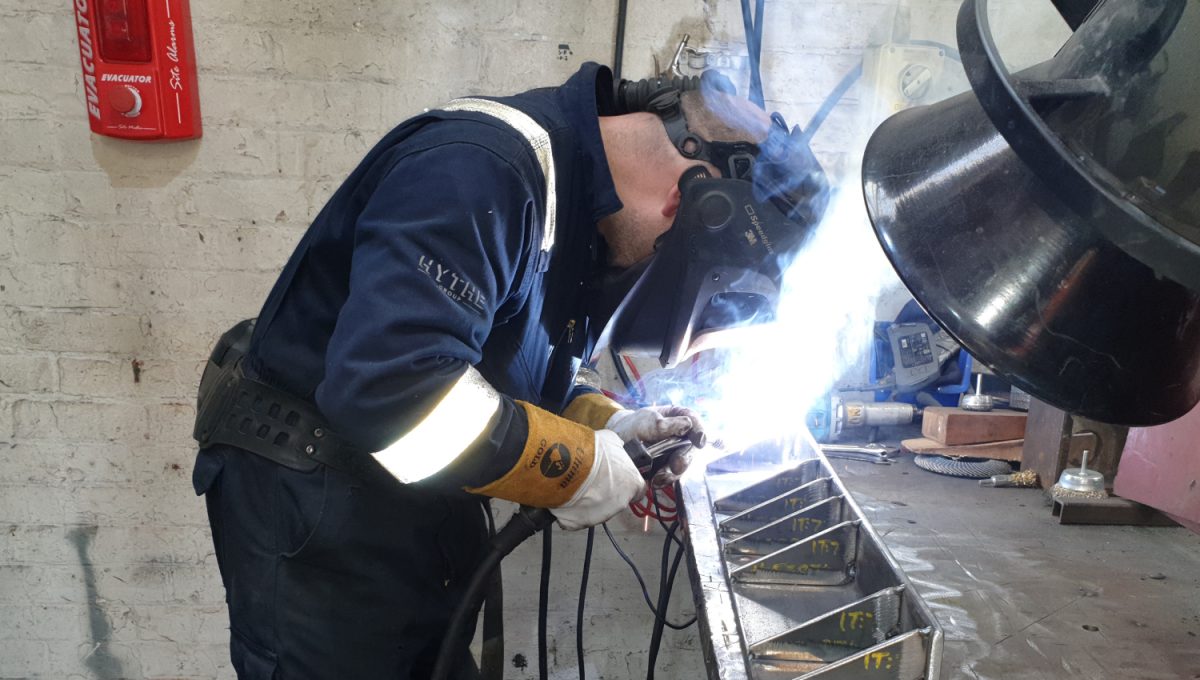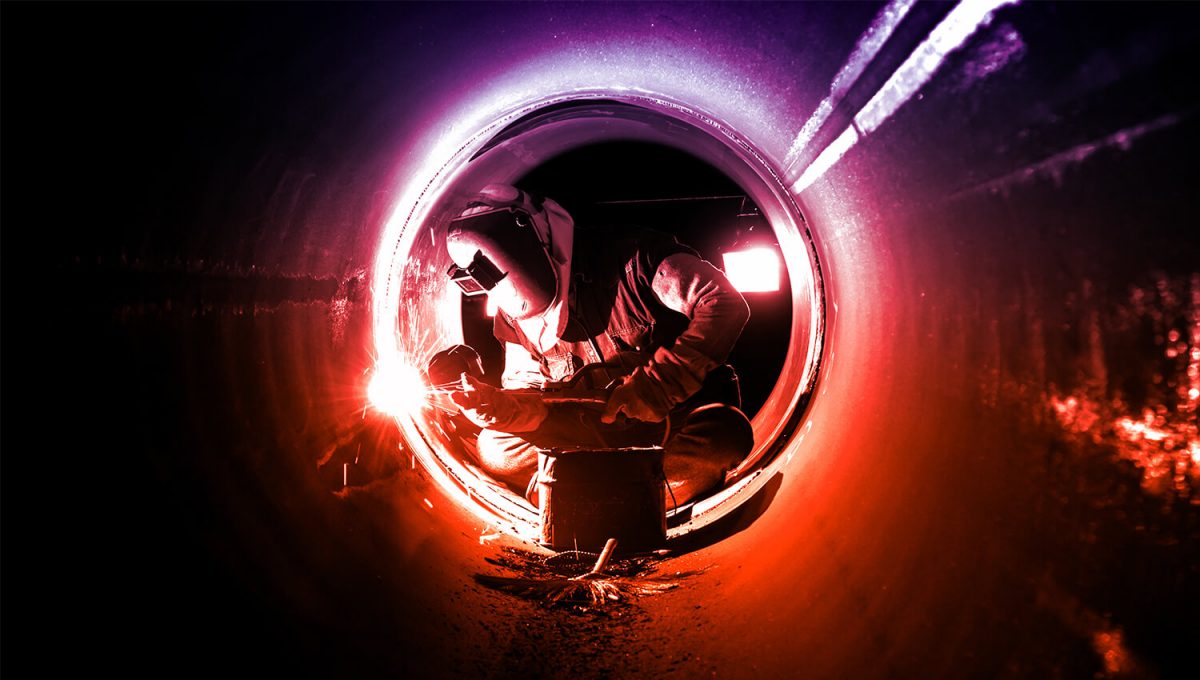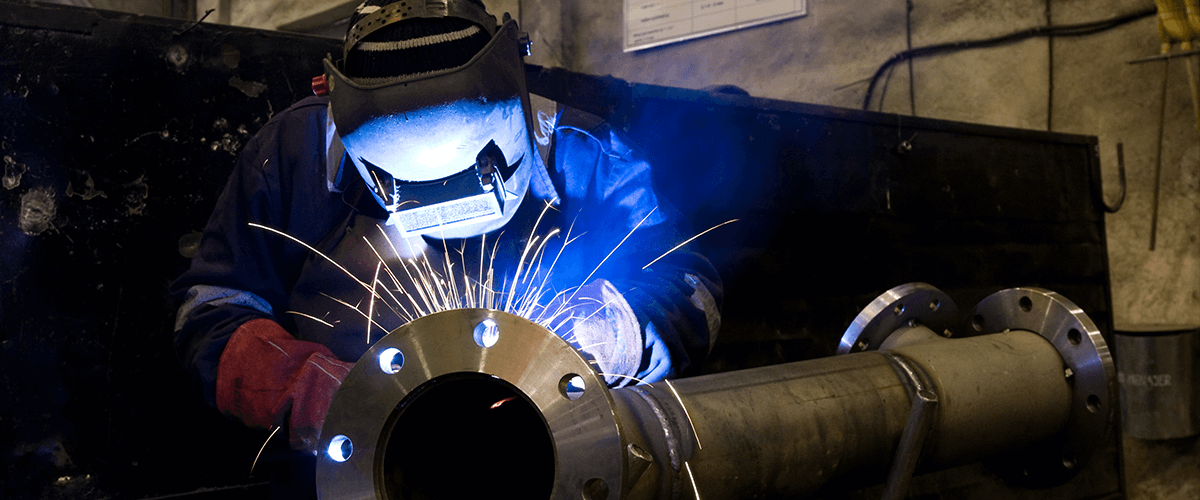A Conversation With Adventure-Seeker and Family Man Neil Mellor
Hythe Building Services (HBS) recently established an in-house electrical services division. Heading up this process and department as Electrical Operations Manager is Neil Mellor. Neil will utilise over twenty years of industry experience and his well-respected reputation to grow the division.
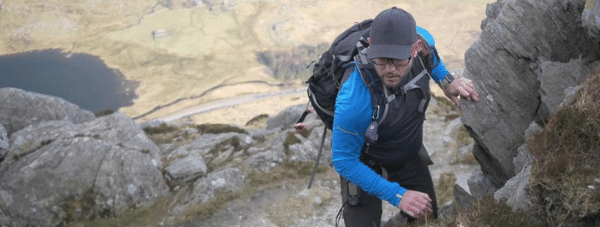
Speaking on the reasons behind the introduction of electrical services for HBS, Neil explained, “We are bringing in-house the ability to deliver the entire Mechanical and Electrical (M&E) package, as a collaborative team effort, all from a single source. This allows us to streamline the design and coordination of both disciplines, leading to greater efficiency and allowing us to build stronger relationships with our customers.”
Neil will oversee the whole process of the electrical division. From finding new clients, getting enquiries, pricing enquiries, managing the bid process, right through to managing the team that will deliver those projects to clients.
To celebrate the new collaboration, we chatted to Neil to find out more about him, his career, and his goals for HBS Electrical.
Introducing Neil Mellor
Outside of work, Neil is kept very busy by his two daughters, aged four and eighteen months. As his girls take up the majority of his time, Neil and his partner’s hobbies and pursuits tend to revolve around getting the family outdoors as much as he can. However, he still makes sure to find the time to play 5-a-side football with his friends.
Neil’s long list of passions all centre around spending time outside. Whether it’s time in the mountains in Wales or the Lake District, rock climbing, motocross racing or kayaking, he’s always up for the next adventure.
In fact, Neil has climbed Mount Kilimanjaro! Between a team of forty people, they raised a quarter of a million pounds for the Hampshire and Isle of Wight Air Ambulance. Leading up to the event, Neil spent a year volunteering for the Air Ambulance service, supporting events and holding collection buckets to raise money.

Neil’s Electrical Services Career and Projects
In 2000, Neil took his first steps in the electrical industry as a trainee project manager and electrical apprentice. After completing chose to stay with the business and work his way up through the ranks, eventually becoming Supervisor.
Under his role as Supervisor, he ran one of the company’s largest projects – a large Transit Mess at the Duke of Gloucester Barracks in Cirencester. The successful completion of the project kicked off his journey into management. Neil was offered a role as a Contract Manager in 2008, managing teams of anywhere from fourteen to twenty-four people every week. But he didn’t stop there – Neil also became the qualifying supervisor for NICEIC compliance.
In 2015, Neil joined a large M&E company – J&B Hopkins. The move meant he could get involved in large-scale projects over the one-million-pound bracket, further developing his commercial and financial awareness of project management.
When working for J&B Hopkins, Neil worked on a variety of projects ranging from one and a half to five-million pound combined M&E value projects. These were mainly in commercial and residential projects, such as retirement villages, secondary schools, primary schools, and hospices. Here are some key examples from throughout his career:
Testing Labs for Panasonic Avionics
Building testing labs for Panasonic Avionics, where they test the electrical equipment that goes on planes. Like the marine industry, electricals in avionics work at vastly different voltages and frequencies used in standard installations on land. So, the TV’s, audio systems, and other electronics are required to be tested in a lab.
CHP Roll-Out for Tescos Stores
Being involved in the rollout of energy-saving CHP (combined heating and power) units at Tescos stores across the south of England. These were basically large turbocharged V8 car engines running on natural gas to produce the heating for the store while generating electricity as a by-product and also feeding back into the National Grid.
Seventy-Three Property Private Retirement Village
Project managed the delivery of Luxury retirement village, Bishop Stoke in Eastleigh, from a mechanical and electrical perspective over two and a half years – including the expansion of the current energy centre to include additional plant and distribution and CHP to feed a district heating system serving blocks and individual residences
New Hospice Facility for St Wilfred’s Hospice in Bosham
This project involved the building of a bespoke new building for the charity that provide essential end of life care for patients who were currently working out of a dated facility that couldn’t cope with the high demand for beds. The project included full building-wide DALI lighting controls, centralised emergency lighting systems, state of the art nurse call systems and bespoke medical bedhead trunking designed in conjunction with the client and Cableflow
Town Centre Redevelopment in Addlestone, Surrey
A complete redevelopment of Addlestone town centre in Surrey. They demolished all the buildings around the council offices and built a new shopping centre and a huge residential development. It was a three-year project building the backbone infrastructure and a new energy centre, as the development was heated by district heating systems.
The Old Rectory – A Twenty-Six Million Pound House in Wimbledon
Working on the complete refurbishment and extension of a twenty-six million pound house in Wimbledon called the Old Rectory (previously owned by Henry VIII!).
Neil said, “This was a really good project to work on for two years. The walls were covered in tapestries and artwork, the ceilings were intricately corniced and the wood in the house was wonky and curved as it was built out of timber from old ships.”
The Significance of Reputation in The Building and Electrical Services Industry
It’s evident that reputation is incredibly important in any industry. Building on this, Neil explained, “Reputation is one of the hardest things to earn and harder still to regain if lost. But just as important, and what goes hand in hand with it, is honesty. If you’re not honest, you’ll never gain a good reputation. We’re looking to be the company, client’s trust, and we want to secure repeat work as people want to work with us, not just because it’s the best price on a sheet of four quotes.”
We also discussed what Neil sees as the characteristics of a strong electrical services team. He explained that having engineering at the heart of our drive to do the best job we can do makes us strong. Alongside this, it’s crucial to rely on and pass on our wealth of industry experience to the team – existing and new.
Neil is hoping to use his existing reputation to be the company people want to come to because of the open communication and the collaborative nature, working toward the shared goal of getting the job done.
What Makes HBS Electrical Stand Out?
As part of the Hythe Group of Companies, the marine industry background runs strong through the heart of the company. The backing of the Group and Hythe Marine Services is at the core of HBS’ quality. Neil explained, “The first thing I tell anyone when they ask about the company is that the pedigree of this service is born out of the marine services, the dockyard, and the Navy. It’s those sorts of values that mean we can really push the quality for our electrical services customers.”
Speaking on company growth, Neil said, “I want to try and grow the division organically. This means bringing people through and developing their skills, so you’ve got that complete buy-in of people who are passionate about the businesses success. I also want it to be collaborative, by creating an environment where everyone feels they can speak up. I’d be a fool if I sat here and said I couldn’t learn something new from someone who’d just joined the industry.”
Having in-house electrical services allows HBS to make sure a turn-key solution for M&E is provided to customers. The client receives a fully coordinated product, with a guarantee of quality as nothing can fall between the cracks of the services.
Contact us to find out more, or click here to connect with Neil on LinkedIn.



